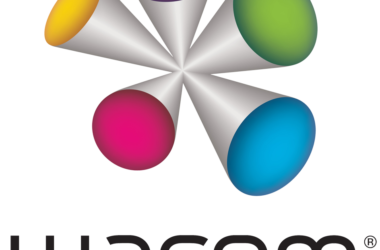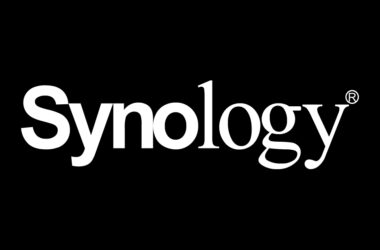With hybrid events gaining popularity, more and more hybrid event platforms and software are popping up. As hybrid events increasingly become popular among event experts, the quality and quantity of available technology is growing rapidly. However, the constant evolution of many hybrid event tools and software can become overwhelming for event professionals.
With hundreds of platforms to choose from, how do you determine the best that will suit your needs? This post looks at the 10 best industry hybrid event software and tools. With the software and tools, you can manage large-scale events such as trade shows, festivals, conferences, and important meetings of professional organizations.
The products can be used to plan and manage events from the beginning to the end with tools that offer functionality for payment processing, attendee registration, event marketing, agenda development, and many more.
What is a Hybrid Event?
I know you have heard the word hybrid over and over lately. But what does the term mean in the context of events? Well, a hybrid event is simply an event that combines both a physical event and a virtual experience. A hybrid event combines live elements, such as in-person speakers, attendees, venues, and remote components like online participation for anyone, no matter their location. During a hybrid event, both the physical and the online audience come together and enjoy the same content or experience simultaneously from different locations worldwide.
Hybrid events are not new. They have been here and we go to hybrid events all the time. A good example of hybrid events is sporting events. Others include concerts and award shows. Hybrid events enable people with similar interests and goals to connect seamlessly, learn, and share information. Because limited seats are available on-site, millions of fans interested in the event view it online. They all attend the same event, making it fit a definition of a hybrid meeting.
What are the Benefits of a Hybrid Event?
A hybrid event might not be the easiest to host, but once you understand its benefits, you are going to put more effort into hosting your next hybrid event. Here are the common benefits of a hybrid event:
1. Helps Engage Your Participants
In most on-site events, attendees are always hesitant and scared to ask questions for many reasons. During on-site events, much time is wasted when the Q&A session comes up. Luckily, with a hybrid event, attendees get the freedom to ask questions remotely. Remote platforms like Interactio are coming with live Q&A tools that will help increase engagements during hybrid meetings.
2. It Helps Increase Your Reach and Audience
While organizing an on-site event, it would be hard to accommodate thousands of people. With a virtual event, possibilities are endless. With a simple event setup, you can stream your event on different social media channels to thousands of attendees worldwide. This way, you will ensure that many people participate in your event.
3. Expanding Speakers Network
A hybrid event allows you to invite talented and experienced speakers from every corner of the world. With remote interpretation services, the speakers can speak in any language, and your audience won’t struggle to understand their message.
4. Creates More Room for Flexibility
Planning an event is a lot of work that can take even months, making it difficult to predict the weather conditions for the event day. When you introduce a virtual component to your on-site event, all your in-person attendees can tune in online from anywhere. Even if the weather conditions become unfavorable, your event will happen and accommodate any attendees who join the event online.
5. Helps Preserve the Environment
Before we can call virtual events eco-friendly, there is a long way to go. For in-person events, they leave a highly alarming carbon footprint due to the frequent traveling of attendees. The biggest advantage of hybrid events is that they provide attendees an alternative to join the event or meet remotely.
6. Better Budget Management
Managing a budget for a huge event can be tricky, especially for small-midsize businesses. Still, there can be doubt about meeting the targeted attendee count. However, you won’t have to worry about such risks with hybrid event software. Organizing events virtually helps businesses save by limiting the physical event management and ensuring maximum attendee count.
7. Easy Access to Insights
Nowadays, technology has made everything easy. Hybrid event software help organizers access data on attendee participation and engagement. Organizers can easily get actionable insights to analyze the effectiveness of their event. Moreover, the captured data can enhance the event activities and ensure more quality offline and virtual experiences for upcoming events.
What Considerations to Keep in Mind Before Choosing A Hybrid Event Software
Before choosing a hybrid event software, you must first know your hosting event. A hybrid event may require a different virtual component than an expo or trade show and vice versa. The common things to remember before you choose a hybrid event software include:
1. 360-Degree Customization
This important consideration allows organizers to connect their brand theme with the event venue. This helps organizers emphasize their branding similar to what would normally happen in a physical event full of brand banners and hoardings.
2. Integration Feature
Data integration from applications and systems makes it convenient for event organizers to keep and manage vital attendee data from a single platform. For instance, a corporation can sync the details of employees expected to attend the event, and trade show organizers can easily sync the information of customers and clients. The feature can be paired with the attendee management feature to increase efficiency for organizers and deliver an excellent experience to all attendees.
3. Multi-Language Support

Businesses that interact with global clients, customers, and employees can take advantage of the multi-language feature and ensure they cater to a broad audience during events. Moreover, the feature allows real-time translation or simple subtitles during speaker sessions, videos, or live streaming.
Other crucial considerations include:
· Networking opportunities with other attendees
· Clear, high-quality video broadcasts with speakers engaging during presentations.
· Entertainment surprises: e.g., social media walls, gamification, social media walls, and many more
· Ability to send push notifications during the live event
· An integrated mobile event app for in-person attendees to access.
What are the Keys to a Successful Hybrid Event?
For your hybrid event to succeed, some things play a big part. The common things include good content, engaging video production, and perfect networking. Your content must be good and adjusted for audiences, and personalized accordingly. Ensure that physical attendees and online are attended to and treated the same way. A successful virtual environment needs to provide much more than streaming content; it must be curated well.
Also, think about communication sensitivity. Engage content that strikes the right tone so you can build anticipation for the event for anyone attending virtually. It may help solve the issues of why some are attending the event live while others are remote.
The 10 Best Hybrid Event Management Software 2022 Reviews Pricing and Comparison
1. BigMarker
Bigmarker software is the world’s most customizable platform for hybrid events, virtual events, and webinars. Whether you’re hosting a one-hour event or a three-day conference, BigMarker offers a powerful platform to produce, publish, and generate actionable data around good content. The platform has a broadcast studio that enables you to create unique, on-demand video experiences and then multi-stream them virtually to any destination.
BigMarker has complete branding and navigation control, allowing you to host professional virtual event experiences. You can mix and match 15 modules, including breakouts, sessions, exhibitor halls, gamification, networking, and many more. You get a seamless event badging experience with on-demand badge printing and scanning. You can check attendees into sessions and generate analytics to improve the experience.
Notable features
· On-demand badge printing and scanning
· Seamless on-site registration and check-in
· AI-powered matchmaking service that connects attendees with relevant contacts
· Powerful built-in marketing tools.
2. Webex Events
Webex Events is an all-in-one event management software that enables businesses to organize and manage virtuals, hybrid events, live stream video shows, and manage attendee engagement activities. The software uses intuitive technology that helps you raise the bar for your events, whether the audience is joining in-person or virtually. You can power safe in-person experiences using the Webex Event check-in and badge printing solution. Still, the onside solutions like live display make it easy to deliver connected attendee experiences.
The platform has all the networking and engagement features required to ensure active virtual participation and better results. Using the customizable mobile event app, you can allow attendees to access the event in-person or on the go. It works well for any event type, format, or organization.
Notable features
· Customizable mobile phone app
· Features event check-in and badge printing solution
· Flexible ticketing
· End-to-end event management
· Seamless data storage.
3. Cvent Event Management Software

Cvent is a powerful software that helps midsize enterprises and organizations with online event registration, revenue sourcing, payment processing, and budget management. Furthermore, it enables event organizers to track the attendance of different events and capture relevant data.
Event planners can create calendars and enable attendees to view all the upcoming events and decide which to attend. Cvent software has a reporting feature that gives built-in reports and enables users to create more customized reports. All the data from the reports can be exported. In addition, it provides integration with third-party applications, including Eloqua, Marketo, Salesforce, and Concur. So, it is a great platform to help manage your event from start to finish, all in one place.
Notable features
· Contact management
· Mobile websites and social sharing
· Integration with third-party apps
· Built-in reports.
4. Bizabo Software
Bizzabo’s next-generation software allows you to create better in-person, virtual, and hybrid experiences. Find what you need to create more successful experiences with the Event Experience OS. It helps organizers to manage events, engage audiences, grow communities and provide powerful outcomes.
The software has an award-winning AI engine that personalizes event experiences and creates better moments for all your event attendees. It is software that meets even the strictest compliance requirements of enterprises globally, enabling you to scale confidently. Bizabo software has powerful tools that promote, manage and produce good events with flexibility and ease for all event types and formats.
You can delight every participant with a personalized and amazing experience curated for ultimate engagement pre-, during, and after the event. Its integrated OS gives you more access to unlimited data points, and the open platform approach and powerful integrations help personalize your event experiences.
Notable features
· Registration and payment management
· Website builder allows HTML customization
· Smooth working polling feature
· Push notifications.
5. Boomset Software
Boomset software provides the best user-friendly solutions for fast data entry, automated event flow, and insightful ROI. Boomset by Hopin allows users to track session attendance, print badges and schedules on demand, provide lead retrieval to exhibitors, and manage RFID technology during events.
The software allows users to view check-in, or check-out data, collect photos, view attendance reports, collect signature information, and down all the event demographics from the system. Its key features include kiosk check-in, facial recognition, badge printing, access control, on-site services, item redemption, gamification, and lead retrieval.
Instead of wasting materials pre-printing badges and wristbands, everything can be done on-site within a few seconds. It includes an on-site tool that makes data correction simple and easy to track and manage attendees.
Notable features
· On-site badge and wristband printing
· Cashless payments
· Uses simple technology for tracking attendees
· Kiosk check-in
· Facial recognition.
6. Glisser Software
Glisser is the most feature-rich audience response system worldwide. It enables organizations to manage live events, virtual meetings, courses, and many more. It includes audience live polling and Q&A modules that allow users to raise queries, offer feedback, and visualize opinions during a hybrid event.
Glisser software lets participants remove and download specific digital notes while streaming live presentations. Moreover, it allows users to customize the platform per business needs by adding themes, logos, colors, and many more. Administrators can seamlessly configure passwords, and permission rights, restricting users from accessing specific sessions or the entire event.
Notable features
· Audience lottery functionality
· Live polling and live slide sharing
· Digital note-taking and event feedback
· Password and security
· Custom branding.
7. Viewstub Software
Viewstub software is an event management software built to enable businesses to schedule live streams and organize online events. The event ticketing feature helps you sell more tickets, control access, clear long lines, and optimize the attendee experience. With its incredible live streaming, you can broadcast your experience to fans worldwide. Teams can simultaneously stream multiple live sessions with different camera angles.
ViewStub is a good solution that helps administrators to manage promotions, ticketing, payments, registrations, and content on a unified and improved interface. Furthermore, supervisors can share affiliate links with advertisers and manage track sales and commissions. With this platform, organizations can block unauthorized traffic using secure access gateways and communicate better with attendees via live polling.
Notable features
· Event ticketing online and at the door
· Broad marketing tools
· Video streaming and chat functionality
· End-to-end event management.
8. 6Connex Software

6Connex is a virtual event platform ideal for businesses of all sizes hosting events, including virtual trade shows, job fairs, benefit fairs, and summits. This software makes it easy to manage and host successful events at scale and in any format. It is one of the best platforms that satisfy your attendees after every event.
The platform provides on-demand broadcasting, whiteboarding, screen sharing, multilingual programs, presentation resources, and gamification to share all the content with your event attendees. 6Connex supports events of all sizes and uses HTML5 for an incredible experience. It includes real-time event reporting and analytics for businesses to measure and track visitor interaction.
Notable features
· Enterprise-grade security
· HTML5 technology
· Real-time reporting and analytics
· Flexible attendee registration.
9. FLOOR Software
FLOOR was previously known as Odash. It is a cloud-based event management solution for event organizers who would love to market and manage their events efficiently. Organizers can build event websites, increase event visibility on the internet, generate multiple leads, communicate with the leads across various channels, get event insights, do on-site registration, do badge printing, and many more.
The platform allows event organizers to sign up and create a new account for free. Under the free plan, the event’s supervisor can add unlimited events 10 times and access all the basic features. After testing the software, organizers can upgrade to Premium or Premium+ to access advanced features.
Notable features
· Uses Q&A and polls for audience engagement
· Live recording and sharing
· On-site registration and badge printing
· Social forum and networking.
10. Eventzilla Software
Eventzilla is another popular registration and marketing platform for in-person, hybrid, and virtual events. It is an excellent solution for webinars, conferences, virtual events, classes, fundraisers, and sports events. It has everything you need to set up an event website, process payments, track attendees, publish event schedules, and ensure seamless check-in.
With this software, you can create a community where attendees have many options to connect, including activity stream, 1-1 chats, Q&A, polls, and many more. You can you’re your sponsors, and exhibitors showcase their brand and content with digital booths to keep your attendees engaged. In addition, it includes self-service video production tools that allow you to broadcast quality live streaming sessions or pre-recorded videos for smaller events.
Notable features
· Custom branded event websites
· Mobile event app
· Name badges printing
· Check-in (available for both Android and iOS devices).
Wrapping Up
As hybrid events gain popularity, more software that enhances better user experience continues to be developed. With so many platforms to choose from, it can be difficult to know which is the best for your organization. Take advantage of our list above with the best hybrid event platforms to make the right decision. The platforms are approved, verified, and used by millions of customers worldwide.









